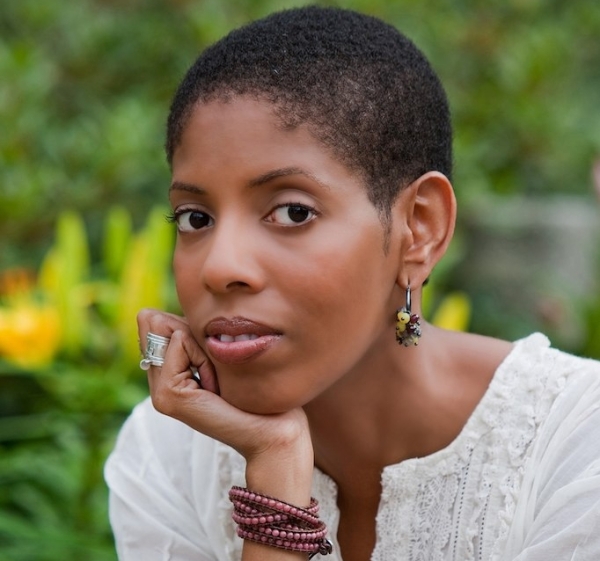Lydia R. Diamond's Smart People Changes the Conversation About Race
Lydia R. Diamond has made a career of theatrically peeling back the layers of racial tensions in the United States. She made her Broadway playwriting debut in 2011 with her racially charged family drama Stick Fly, and now returns to Boston's Huntington Theatre Company, where Stick Fly began its life, to premiere Smart People, her latest crack at these complex social dynamics.
Set between September 2007 and January 2009 in Cambridge, Massachusetts, the play follows four Harvard intellectuals, each of whom wrestles with racial prejudice in his or her respective academic and social spheres. The central character is a white neuroscientist whose latest research implies the highly contentious thesis that racial prejudices may be genetically predetermined — a finding that leads to enormous professional consequences. Diamond spoke with TheaterMania about these sensitive social and political topics touched upon in her new play, the trajectory of which took a sharp yet "thrilling" turn after President Obama's "game-changing" election in the middle of her seven-year writing process.

(courtesy of the Huntington Theatre Company)
How did you arrive at the title Smart People?
I started writing this play seven years ago and the title came to me in a flash because it's so what this thing is about. It's about self-identified or externally identified "smart people" and whatever that means. I'm not a big title person but I thought of this and I was excited.
Why did you decide to set Smart People at Harvard?
It just happens to be where I've lived for nine years. My husband taught at Harvard and I taught at Boston University. But also because it's a play about people who are, career-wise, functioning at the height of the country's celebration and validation of those careers. It made sense to write a play around how these various A-type personalities circle each other in ways that are complicated by that. It isn't really all about Harvard. It's so much more about the premise of what happens if a man — a protagonist who happens to be white — has this truth that is an ugly truth and how people respond to it.
What inspired the play's controversial subject matter?
My husband read an article by a woman named Susan Fiske called Dehumanizing the Lowest of the Low. It is not based on her study, but it's vaguely inspired by that kind of work. What the study introduced to me was this idea that there were these newer scientists studying race through brain imaging. Her study was looking at how brains registered indigents, which turned out to be not at all. The brain wasn't lighting up scary, it wasn't lighting up pity, it was just not seeing them, and I thought that was huge. My work has always been about the intersection of race and class and sexuality and it seemed really rife with those themes in terms of how I could extrapolate from there.
How do Boston audiences respond to the racial issues you incorporate into your plays?
With my work, I'm always a little intimidated by what that might be and how things will land because this is a really hard thing for us to talk about, which is why I find it fascinating to write about. [Stick Fly] was so beautifully received, so it seems that Boston is very receptive and happy to have these difficult conversations. This play is interesting because it will ask of the audience and of me as an artist to up our game around how we receive it and how we hear it and how we push past feeling implicated.
You've said that you felt yourself beginning to "shy away" from these racial conversations in your plays. What do you mean by that?
It wasn't so much shying away as just not owning it. I had for so long talked comfortably about my work being about the human condition and family and love and people finding themselves and that is all true. Then Obama got elected and people started throwing around the word post-racial and I felt that we had to up our game around how we talked about race. It became a much more nuanced conversation and I decided to own it. [Smart People is] not a play with an agenda. It is a play about how people and their hearts and their desires bump up against one another, but it's also very much an examination of where we are right now in our conversation. And it's always shocking that we still struggle — even with the term post-racial [implying the question] is race even an issue in America?
Was it important to you from the beginning that the play be centered around Obama's election?
No, what happened was I was being a slow writer and then Obama got elected. It asked us all to be more sophisticated about the way we thought about race. I was needing to equip myself with a different set of tools around which I engaged us in that conversation. It only helped the play ultimately but it certainly was a game-changer during the course of writing it, because the game changed. For a second it was overwhelming, but then it was just thrilling.










